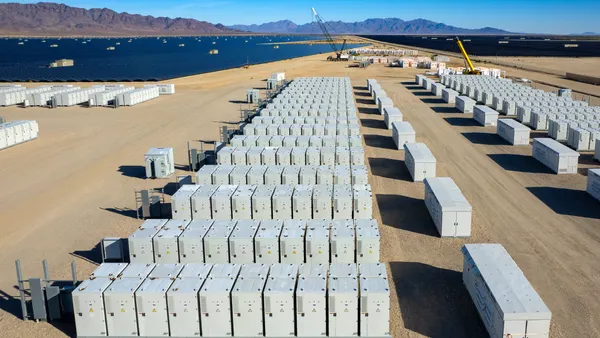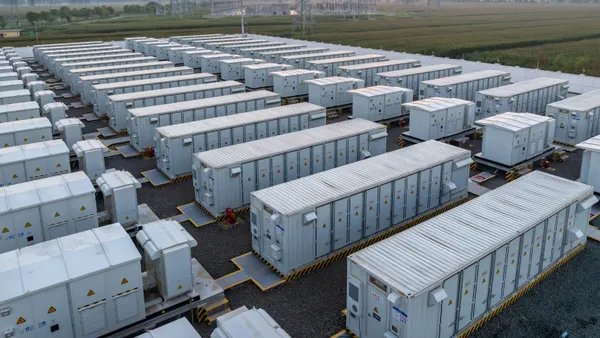Dive Brief:
- Rep. Jerry McNerney (D-California) last week introduced the Consumers Rebate to ban Emissions and Boost AlTernative Energy (REBATE) Act, which aims to put a price on carbon emissions from burning coal, oil and natural gas.
- The legislation puts the price for taxable carbon emissions at $15/ton, which would be paid by the paid by the miner, producer or importer of the resources, Smart Grid News reports.
- A study from Regional Economic Modeling Inc. last year claimed that the benefits of a $10/ton carbon fee and dividend approach showcase a 33% decline in carbon emissions after 10 years and 52% after 20 years. That also equates to a nearly $80 billion increase in gross domestic product (GDP) from 2020 and on.
Dive Insight:
Rep. McNerney said his bill will limit the impacts from climate change and encourage a clean energy economy.
"My Consumers REBATE Act takes the revenue generated from pricing carbon over time and puts it in the hands of consumers to empower individuals to become more efficient in their energy choices," said McNerney in a statement. "We must look at climate change, one of the great challenges facing future generations, as an opportunity for America to be the leader of a new clean energy economy. Now is the time to build on the innovative technologies and investments we've already made with market-based approaches that will further drive renewable energy production, promote job creation and produce a cleaner environment."
Long a popular climate policy among economists, political controversy surrounding the causes of global warming has limited serious federal consideration of a carbon price in the United States. But with the finalization of the Clean Power Plan, regulators in many states are weighing potential cost benefits and implementation ease of a price on carbon to comply with the regulatory package.
This summer, a preliminary report from the grid operator Southwest Power Pool found that states in its footprint could save about $1 billion annually in compliance costs with a $45/ton carbon price adder in regional electricity markets, rather than implementing emissions caps on a state-by-state basis. That finding mirrored earlier reports from other U.S. grid operators finding cost savings in regional compliance approaches with a price on carbon.
The utility industry has also weighed in, expressing support for the ease of implementation of a carbon price. In its comments on the draft proposal of the Clean Power Plan, the Edison Electric Institute, the trade group for U.S. investor-owned utilities, called for the EPA to designate a nationwide price on carbon that states could elect to implement to comply with the regulations.
In launching his bill, McNerney pointed to California's implementation of a cap on carbon in 2006, which has since brought in some $12 billion for clean energy venture capital, according to the Environmental Defense Fund.













